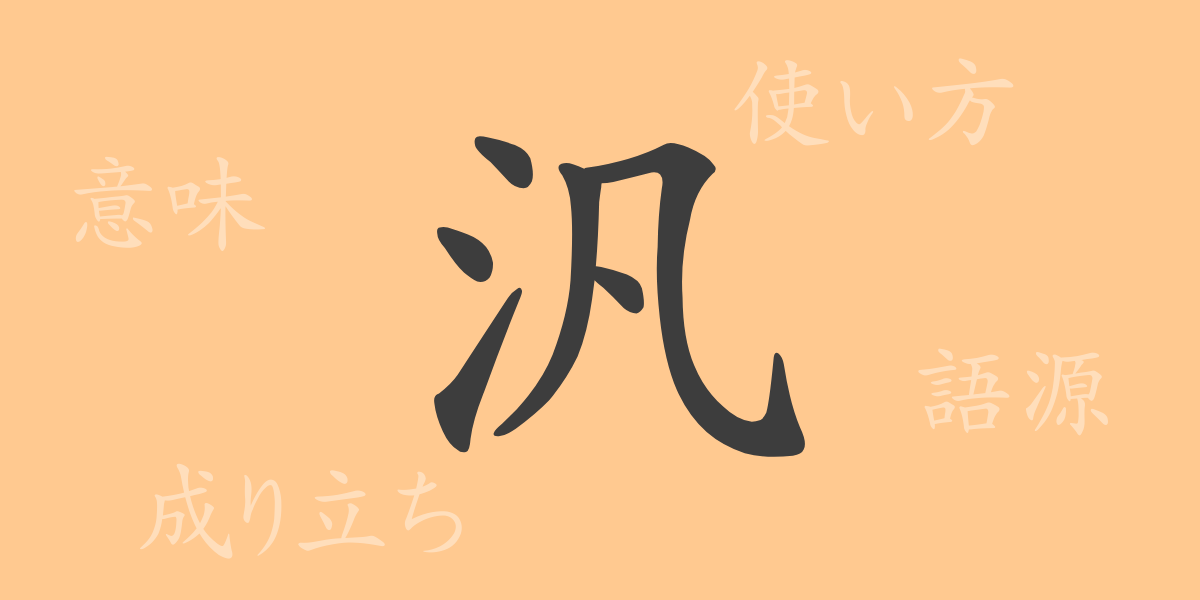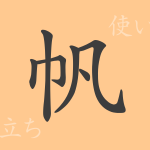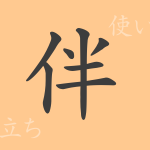Within Japan’s rich character culture, commonly used kanji are essential to daily communication. One such kanji, “汎” (ハン), is used across various contexts, not limited to any specific field. This article explores the origins, meanings, usages, and related phrases of “汎” (ハン), delving into its appeal.
Origins of 汎 (ハン)
The kanji “汎” (ハン) is composed of “氵” (さんずい), representing water, and “舟”, which means boat. This combination conjures the image of a boat traversing a wide expanse of water, leading to meanings such as “extensive” and “spreading.” Tracing its usage back to ancient China, it was employed to express the idea of covering a broad area.
Meaning and Usage of 汎 (ハン)
“汎” (ハン) carries meanings such as “encompassing,” “broad,” and “general.” It is primarily used as a prefix for adjectives and nouns to indicate something that has a wide-ranging impact. For example, “汎用性” (ハンヨウセイ) denotes versatility, and “汎欧” (ハンオウ) refers to all of Europe.
Pronunciation, Stroke Count, and Radical of 汎 (ハン)
Basic information about the kanji “汎” (ハン) includes:
- Pronunciation: The on-reading is “ハン”, and there is no specific kun-reading.
- Stroke Count: It consists of 6 strokes.
- Radical: The radical is “さんずい”.
Phrases and Idioms Using 汎 (ハン) and Their Meanings
There are several phrases and idioms that include “汎” (ハン), each reflecting its meaning of widespread relevance:
- 汎用 (ハンヨウ): Refers to something that can be used for many purposes.
- 汎用性 (ハンヨウセイ): The characteristic of being usable across a wide range.
- 汎アフリカ (ハンアフリカ): A term that refers to all of Africa.
- 汎神論 (ハンシンロン): The belief that divinity exists in all things.
Summary on 汎 (ハン)
The kanji “汎” (ハン) is aptly suited to express concepts involving a wide scope, as indicated by its form and meanings. It is a versatile character widely used in the Japanese language, and through this article, we hope you have gained an appreciation for the depth of meaning “汎” holds and the richness of Japanese expression.

























